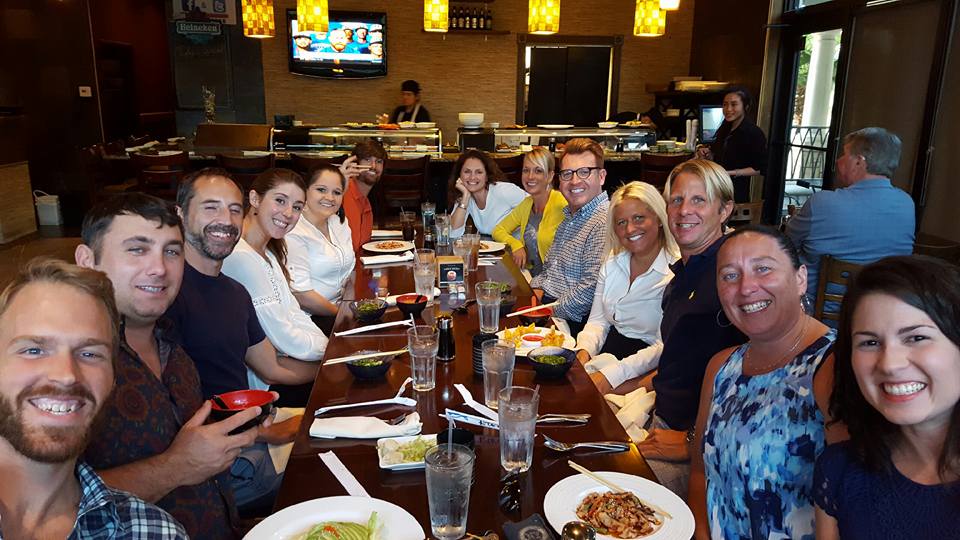Every September, SAMHSA sponsors Recovery Month to increase awareness and understanding of mental and substance use disorders and celebrate the people who recover. {SAMHSA is the Substance Abuse & Mental Health Services Administration}
Addressing the real problem, bringing real change
In honor of Recovery Month, I’ll celebrate 5 years of sobriety in November. To most people that means I’ve abstained from using drugs and alcohol for five years. To me it marks the beginning of a complete and total transformation of my life.
There’s a common assumption that as an addict my biggest problem is the drink and the drug. When in fact the problem is ME. The drinking and drugging was my solution. The moment I realized I WAS THE PROBLEM, was when I understood that DRUGS WERE JUST MY SOLUTION.
Cleaning your body of all mood altering substances is just the tip of the iceberg. It’s time to find a new solution.
Being a part of…
First things first, it can’t be done alone. Treatment centers, mutual support groups, faith based recovery, sober living environments, and 12 step groups all have one thing in common; community. All effective pathways to recovery operate around the recovery based community.
Let’s compare recovery to running a marathon for the first time. It would be awful discouraging to run a marathon down empty city streets, without a crowd of friends cheering you on along the way. I for one would much rather have the streets lined with crowds of supporters motivating me to the finish line.
In this way a supporting community helps to move you through the steps of change, holding you accountable and pointing you in the right direction.
Helping yourself…
You’ve made yourself a part of a recovery based community. You’ve accepted direction from your recovery based peers. Now, it’s time to help yourself. The idea is that you help yourself so that before long you can help others. Better you inflate your “recovery life raft” before you start pulling survivors from the wreckage in with you. Therapy and counseling, working through the 12 steps, and learning from the community can help you pump up that “recovery life raft”.
Keeping in mind that the drugs were the solution to the problem, we set forth to find a new solution. We must learn to challenge our default thought processes. I like to say that before recovery my brain was a “ready-fire-aim-brain”. Now in recovery we must learn to aim before we fire, to think before we act. In most cases we try to share our thought processes with other recovering community members. This change in our thought process doesn’t occur overnight. We have to be patient and open minded to a new way of thinking.
The road to recovery…
Eventually the desire to use drugs and alcohol becomes something of the past. But our work on self is never really compete. ‘Self’ is always a work in progress. We incorporate healthy coping skills through hardships, develop new ways of thinking, and we lean on mentors in our recovery network for help.
Even in recovery people make mistakes because no one is perfect, we use these as opportunities to learn and grow. In the event you’re not sure what to do, maybe don’t do anything. It may serve you well to take your time making important decisions. Share these “forks in the road” with your recovery peers, be open minded to new perspectives.
Never forget that everyone has their own struggles, try to be kinder than necessary. Behind every grumpy stranger is another human being who is hurting inside. You’ll find it feels good to be good to strangers.
I think God intended for humans to share life as a community. We weren’t meant to be on our own. Relationships with others is perhaps one of our greatest gifts. I know it has been for me.
Today I’m still the problem, more often than I care to admit. The good news is that my solution is no longer drugs and alcohol. Each day I learn more about re-designing my thought process. Today my solution is surfing, it’s love over hate, it’s faith over fear. And that’s just the tip of the iceberg.
Christopher Blauvelt is the Admissions and Outreach Coordinator at The Augustine Recovery Center, in St. Augustine, Florida.





